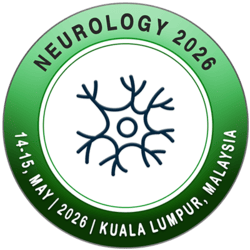
Dr. Sagarika Muradia
University Hospitals of Leicester, United KingdomPresentation Title:
Exploring patient engagement: A retrospective study on the use of Rehacom in conjunction with traditional cognitive rehabilitation in acquired brain injury patients at University Hospitals of Leicester
Abstract
Background: Cognitive rehabilitation (CR) is central to recovery following acquired brain injury (ABI). Traditional CR relies on therapist-led, non-computerized day to day tasks, while computer-assisted tools like Rehacom may enhance patient engagement and outcomes. This study evaluated adherence to Rehacom sessions alongside conventional CR in a specialist neurorehabilitation setting.
Methods: A retrospective review was conducted on 27 ABI patients admitted to the Neuro Rehabilitation Unit(NRU) in Leicester General Hospital from 2021–2023. Inclusion required Montreal Cognitive Assessment (MOCA) scores <26. Patients underwent Repeatable Battery for the Assessment of Neuropsychological Status (RBANS) screening and participated in Rehacom in addition to standard CR. Engagement (≥15 minutes/session) and number of completed sessions were analysed in relation to MOCA and cognitive domain impairments.
Results: Of the 27 eligible patients, 21 completed Rehacom screening. A statistically significant association was found between MOCA scores and Rehacom participation (p = 0.038) and also it was observed that patients with MOCA >17 were more likely to complete ≥5 sessions. In terms of cognitive assessment, Attention and processing speed deficits were significantly associated with reduced participation (p < 0.05). RBANS and Rehacom showed strong concordance in identifying impairments across executive function, attention, memory, and processing speed.
Conclusion: Rehacom appears feasible and acceptable as an adjunct to conventional CR, particularly for patients with moderate cognitive impairment (MOCA >17). It also shows that the rehabilitation strategies should be tailored to cognitive profiles to optimise engagement and outcomes. Further research is warranted to evaluate functional improvements and impact on length of stay with use of computer assisted tools like Rehacom in this cohort of patients.
Biography
Sagarika Muradia is a Consultant in Neurorehabilitation at the University Hospitals of Leicester, UK. She has a specialist interest in cognitive rehabilitation, behavioural management following acquired brain injury, and spasticity management. She is actively involved in developing and delivering multidisciplinary rehabilitation programs that integrate conventional and technology-assisted approaches to optimise patient outcomes. Her clinical and research work focuses advancing evidence-based strategies to support recovery in individuals with complex neurological conditions.


